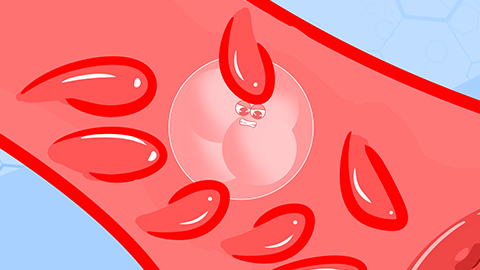Why does the uterus develop polyps?
Generally, uterine endometrial polyps may result from elevated estrogen levels during the reproductive years, hormonal imbalances during perimenopause, endometritis, simple endometrial hyperplasia, polycystic ovary syndrome (PCOS), and other factors. It is recommended to seek timely medical consultation, identify the underlying cause, and improve the condition under a doctor's guidance through general treatments, medications, etc. Detailed explanations are as follows:

1. Elevated estrogen levels during reproductive years: Women of reproductive age experience robust estrogen secretion by the ovaries. Excess estrogen may locally overstimulate the endometrium, causing excessive growth and forming polyps. Avoid consuming health products containing estrogen, such as propolis and royal jelly. Maintain a regular lifestyle, avoid staying up late, and undergo gynecological examinations 1–2 times monthly to monitor uterine conditions.
2. Hormonal imbalance during perimenopause: During perimenopause, ovarian function declines, ovulation decreases, and estrogen-progesterone balance is disrupted. The endometrium lacks progesterone antagonism, leading to hyperplasia and formation of polyps. Regularly monitor hormone levels and follow medical advice to supplement progesterone. Diet-wise, consume more soy products such as tofu and soy milk. Additionally, engage in mild exercises like slow walking or tai chi to regulate the endocrine system.
3. Endometritis: Infections caused by bacteria, chlamydia, etc., may trigger endometrial inflammation. Inflammatory stimulation may lead to abnormal proliferation of endometrial tissue, forming polyps, often accompanied by lower abdominal pain and abnormal vaginal discharge. Patients should follow medical advice to take anti-infective medications such as cefixime dispersible tablets, metronidazole tablets, and doxycycline hydrochloride tablets.
4. Simple endometrial hyperplasia: Long-term estrogen stimulation causes hyperplasia of endometrial glands. Local tissue protrusion forms polyps, which may be accompanied by prolonged menstrual bleeding. Patients should follow medical instructions to use medications such as dydrogesterone tablets, progesterone capsules, and medroxyprogesterone acetate tablets to regulate the endometrium.
5. Polycystic ovary syndrome (PCOS): Patients with PCOS experience abnormal ovulation, continuous estrogen secretion, and insufficient progesterone, which promote endometrial hyperplasia and formation of polyps, often accompanied by infrequent menstruation. Patients should follow medical advice to use medications such as ethinylestradiol cyproterone tablets, drospirenone ethinylestradiol tablets, and desogestrel ethinylestradiol tablets to regulate hormone levels.
In daily life, maintain a light diet and reduce intake of spicy and high-fat foods. Avoid excessive fatigue and maintain emotional stability. Comprehensive nursing care can help prevent polyp growth and support uterine health.





